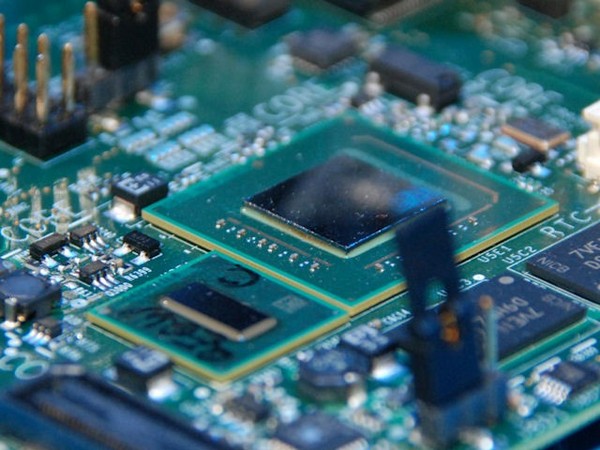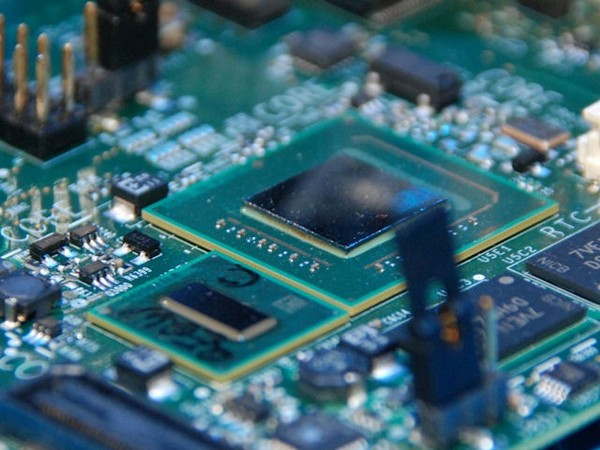
nDevilTV
Intel has been controlling the market for server processors for many years, but the new line’s launch was held in unusual conditions. Recently, the corporation’s renewed competitor, Advanced Micro Devices, announced upgrade of chips for the same platform. In addition, server solutions of NVIDIA, which historically specializes in video cards, unexpectedly began to gain popularity.
Stacy Rasgon, an analyst at Bernstein Research, says: "We have not seen such a competitive situation over the past decade. Intel is trying to show that it still takes a leadership position and that this is an excellent business. This is partly due to the hype surrounding competing products - Intel wants to tell its story. "
In 2016, Intel accounted for 99.7% of the processor market for ordinary, most popular servers. According to Dean McCarron, chief analyst of Mercury Research, the revenue from this category of goods amounted to about 16.5 billion dollars in the last year. The only competitor in this field was AMD, but in recent years, it lost most of its market share as the company hasn’t released any new product.
Investors were mostly not impressed by the news from Intel - the share price has changed little, although the company said that half a million new processors have already been sold to large corporate customers, data centers, companies specializing in cloud computing and telecom providers.
All abovementioned companies are focused on the cloud computing market: AMD, introducing its Epyc chips, talked about their use in the cloud of Microsoft Azure and Baidu, and NVIDIA - about joint plans with Google, AWS and others. But, as Rob Enderle, chief analyst at Enderle Group, notes, cloud services are not permanent customers. At least during the quarter, it was their impermanence in purchases that caused slow growth in Intel's server business. Their loyalty is difficult to win, but is easy to lose.
Analysts also note that the server market is growing more slowly than consumer markets, and it will take some time before AMD sales strengthen and affect Intel’s market share. McCarron from Mercury Research says: "The server market is changing slowly - there is a long cycle of design and testing, so the new product is being introduced gradually. Specific shares are difficult to forecast, but the changes in any case will be slow - simply because of the market’s peculiarities. Today's announcements will affect the market share only after one and a half to two years. "
Previously, Intel's business associated with deliveries to data centers grew faster than sales of processors for computers. In the past two years, however, the growth slowed, which caused investors to worry. In addition, as Rasgon says, Intel's market share is so high that there is no room for growth - only for a fall.
In addition to the threat of competition from AMD on the x86 platform, there are other problems. It is believed that the company is lagging behind the artificial intelligence-related developments, while this is one of the most important work tasks for servers delivered to corporate data centers.
Mark Lipacis, an analyst at Jefferies Inc., said that cloud computing "is gradually moving away from the x86 platform." Data centers like Big Basin, owned by Facebook, are use graphics processors for tasks related to artificial intelligence, like face recognition. In addition, Lipacis notes the success achieved by the manufacturers of ARM chips (the company belongs to SoftBank Group) - these processors, built on non-x86 architecture, are actively used in data centers of large companies, including Alibaba.
Rasgon says: "Tasks generate demand, but this demand is met by other types of processors." Thus, several trends are working against Intel, but the company believes that launching new Xeon chips will be a turning point. However, even if this measure does not help the company maintain its dominant position, we will not immediately learn about this.
source: barrons.com
Stacy Rasgon, an analyst at Bernstein Research, says: "We have not seen such a competitive situation over the past decade. Intel is trying to show that it still takes a leadership position and that this is an excellent business. This is partly due to the hype surrounding competing products - Intel wants to tell its story. "
In 2016, Intel accounted for 99.7% of the processor market for ordinary, most popular servers. According to Dean McCarron, chief analyst of Mercury Research, the revenue from this category of goods amounted to about 16.5 billion dollars in the last year. The only competitor in this field was AMD, but in recent years, it lost most of its market share as the company hasn’t released any new product.
Investors were mostly not impressed by the news from Intel - the share price has changed little, although the company said that half a million new processors have already been sold to large corporate customers, data centers, companies specializing in cloud computing and telecom providers.
All abovementioned companies are focused on the cloud computing market: AMD, introducing its Epyc chips, talked about their use in the cloud of Microsoft Azure and Baidu, and NVIDIA - about joint plans with Google, AWS and others. But, as Rob Enderle, chief analyst at Enderle Group, notes, cloud services are not permanent customers. At least during the quarter, it was their impermanence in purchases that caused slow growth in Intel's server business. Their loyalty is difficult to win, but is easy to lose.
Analysts also note that the server market is growing more slowly than consumer markets, and it will take some time before AMD sales strengthen and affect Intel’s market share. McCarron from Mercury Research says: "The server market is changing slowly - there is a long cycle of design and testing, so the new product is being introduced gradually. Specific shares are difficult to forecast, but the changes in any case will be slow - simply because of the market’s peculiarities. Today's announcements will affect the market share only after one and a half to two years. "
Previously, Intel's business associated with deliveries to data centers grew faster than sales of processors for computers. In the past two years, however, the growth slowed, which caused investors to worry. In addition, as Rasgon says, Intel's market share is so high that there is no room for growth - only for a fall.
In addition to the threat of competition from AMD on the x86 platform, there are other problems. It is believed that the company is lagging behind the artificial intelligence-related developments, while this is one of the most important work tasks for servers delivered to corporate data centers.
Mark Lipacis, an analyst at Jefferies Inc., said that cloud computing "is gradually moving away from the x86 platform." Data centers like Big Basin, owned by Facebook, are use graphics processors for tasks related to artificial intelligence, like face recognition. In addition, Lipacis notes the success achieved by the manufacturers of ARM chips (the company belongs to SoftBank Group) - these processors, built on non-x86 architecture, are actively used in data centers of large companies, including Alibaba.
Rasgon says: "Tasks generate demand, but this demand is met by other types of processors." Thus, several trends are working against Intel, but the company believes that launching new Xeon chips will be a turning point. However, even if this measure does not help the company maintain its dominant position, we will not immediately learn about this.
source: barrons.com


















